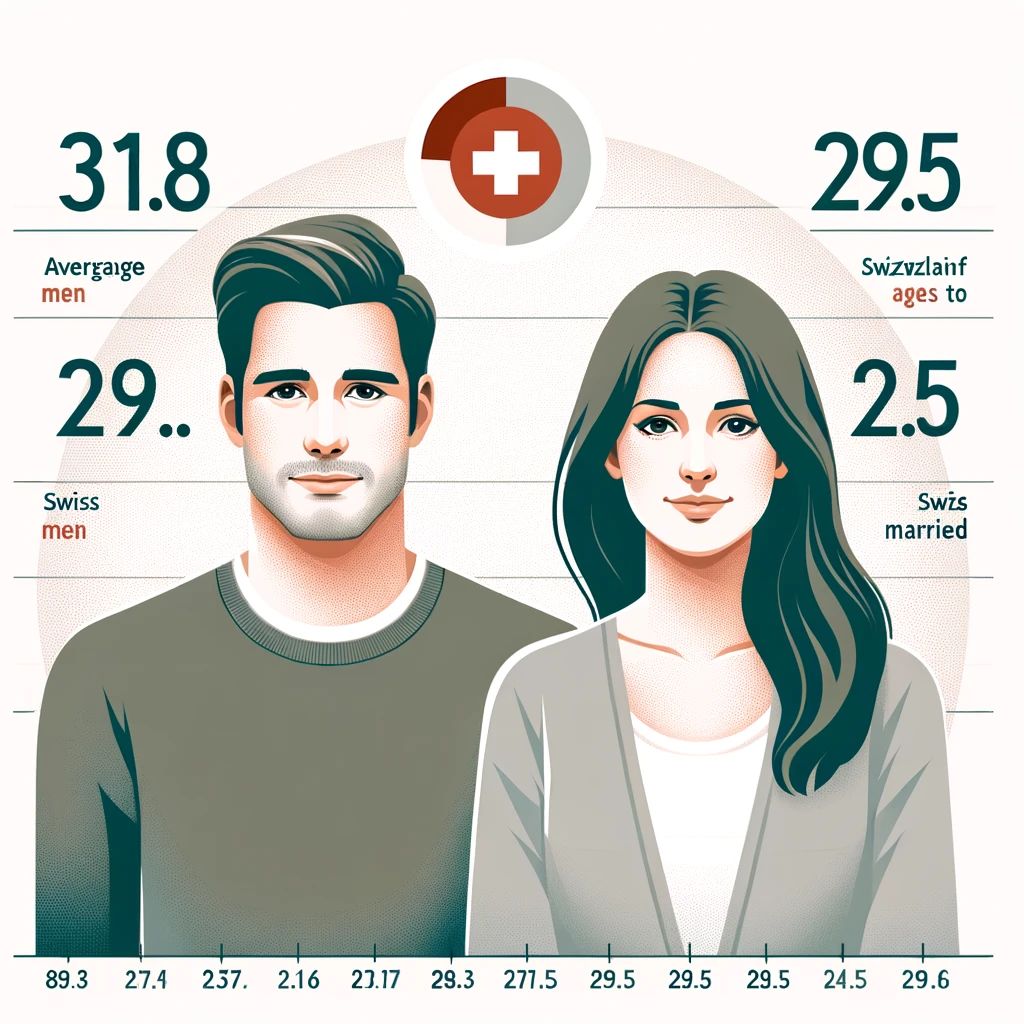Why Swiss Couples Are Marrying Later in Life

In Switzerland, wedding bells are ringing later in life. The average age for marriage is 31.8 years for Swiss men and 29.5 years for women – placing them among the oldest in Europe to get married.
This article explores the reasons behind this trend of late marriages, the implications for Swiss society, and how Switzerland compares to its European neighbors when it comes to tying the knot.
You’ll learn about:
- The factors that contribute to Swiss couples marrying later, like career priorities and economic considerations
- How delayed marriage and parenthood may impact fertility rates and lead to an aging population
- What the norms are around marriage in Swiss culture compared to other European countries
- The childrearing differences between older and younger parents
So why are the Swiss increasingly waiting longer to wed? Let’s take a look behind this notable shift in cultural attitudes towards marriage and family.
Late Marriages in Switzerland

In Switzerland, the average age at which men get married is 31.8, while for women, it is 29.5. This places Swiss men and women among the oldest in Europe to tie the knot. The trend towards later marriages has been consistent over time, with the age difference between single men and women getting married remaining relatively stable since 1950.
Parenthood at an Older Age
Swiss women also tend to have their first child at an older age compared to their European counterparts. The average age for Swiss women to have their first child is 30.4 years, making them the oldest women in Europe to do so. This is indicative of a broader trend across the continent, where the mean age of women at birth of their first child is gradually increasing.
Factors Contributing to Late Marriages
Several factors contribute to the trend of late marriages in Switzerland:
- Education and Career Priorities: Many Swiss prioritize education and career development before settling down, which often delays marriage and family planning.
- Economic Stability: Financial stability is a significant consideration for Swiss couples, who often wait until they are economically secure before marrying.
- Cohabitation: It is increasingly common for couples in Switzerland to live together before marriage, which can postpone the formalization of their relationship.
- Social and Cultural Norms: In Swiss culture, there is less social pressure to marry early, allowing individuals to take more time to find the right partner.
Implications of Late Marriages
Late marriages can have several implications for society and individuals:
- Fertility Rates: Delaying marriage and childbirth can impact fertility rates, which are already low in Switzerland, with a fertility rate of 1.54 per woman.
- Aging Population: An older average age at first childbirth contributes to an aging population, which can have economic and social consequences.
- Family Planning: Couples who marry and have children later may face different family planning challenges, including reduced fertility.
- Childrearing: Older parents may have different approaches to childrearing, often with more financial stability and life experience.
Comparison with Other European Countries
While Swiss men and women marry later than most of their European peers, they are not alone in this trend. In Italy, the average age of women at the birth of their first child is 31.2 years, and in Sweden, the average age at first marriage is 33.3 years for women and 35 years for men.
Conclusion
The trend of late marriages in Switzerland is a reflection of changing societal values and priorities. Swiss couples are choosing to marry and have children later in life, prioritizing personal development, career, and financial stability. While this trend has various implications for society, it also highlights the importance of supporting individuals in their choices regarding marriage and family life.